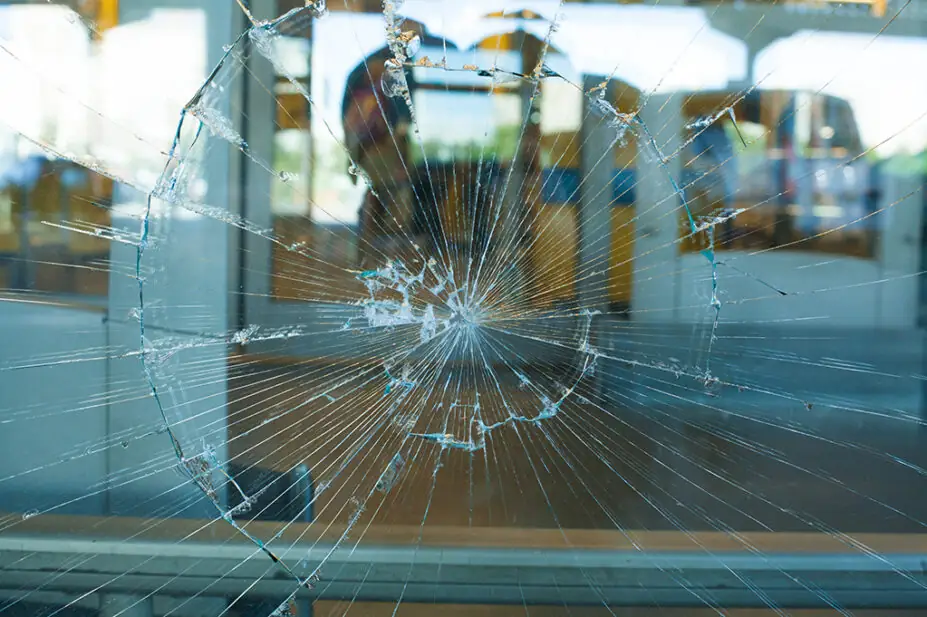
Shutterstock.com
The vast majority of pharmacies in England have reported an increase in shoplifting over the past 12 months, results from a National Pharmacy Association (NPA) survey have revealed.
The snapshot survey of 476 independent pharmacies across England, carried out in August 2025, revealed that almost nine in ten (88%) had experienced an increase in shoplifting.
A similar proportion of respondents (87%) reported a rise in aggressive and intimidating behaviour towards pharmacy teams during the same period.
The survey, results of which have been shared with The Pharmaceutical Journal ahead of publication, showed that 22% of pharmacies said they had experienced physical assaults on staff in the past year.
Of those who reported incidents to the police, 73% reported receiving an “insufficient response”.
One respondent, pharmacy owner Ashley Cohen, told the NPA that both his pharmacies in East Leeds had experienced attempted break-ins “within a few months of each other”.
“Both doors had security grills attached but the individuals tried to cut these out and then cut through the doors. It caused significant damage and needed new security doors and grills to be replaced,” he said.
On one pharmacy premises, bricks had been thrown through the windows on three occasions, Cohen shared.
“Not only did this cause lots of damage and disruption but also made our staff feel unsettled. Within one week of getting new windows replaced this was repeated again.
“As a service we are never protected to the same level that other primary care or NHS organisations are protected,” he said.
In a statement published alongside the results, the NPA warned that stolen medicines could be used for criminal gain, with potentially serious consequences for people’s health. It called on police to take stronger action and urged the NHS to fund safety measures for pharmacies, as it does for GP practices.
The NPA also pointed out that some contractors had taken additional steps to protect their teams, such as the introduction of body worn cameras and the employment of security staff.
In June 2025, The Pharmaceutical Journal reported that body cameras are already used by staff in one in five Boots stores.
Another survey respondent, Sanjeev Panesar, said he had seen “a noticeable rise in petty theft” across his pharmacies in Birmingham over the past 12–18 months.
“While some offenders attempt to steal discreetly, slipping items into pockets or bags when they think no one is watching, others are alarmingly brazen — filling bags openly and walking out without any concern for being caught. Sometimes, our team spots this behaviour directly; other times, it’s members of the public who alert us.
“All of our premises are equipped with CCTV, and footage is regularly circulated within our pharmacy group to raise awareness among staff. We also collaborate with neighbouring businesses to share information and keep an eye out for repeat offenders.
“In fact, we’ve considered displaying photos of known thieves within our pharmacies and partnering businesses as a visible deterrent — making it clear that offenders are being watched and will be reported.”
As the pharmacy owner, Panesar said he had “personally intervened and even chased on several occasions to confront offenders — not because it’s ideal, but to show support for my team and send a clear message: this behaviour will not be tolerated”.
“There is a difficult balance between attempting to recover stolen goods and ensuring the safety of our team. Staff welfare remains at the heart of every decision we make,” he added.
Henry Gregg, chief executive of the NPA, commented: “Due to their accessible nature, pharmacy teams can often be more exposed to abuse and threats than their primary care colleagues.
“Although pharmacies are taking their own steps to protect their staff and premises, the police should do much more to tackle crimes like shoplifting, which is becomingly increasingly common place.
“We need to do more to tackle shoplifting, as well as offering pharmacies similar support to other NHS colleagues in primary care to protect their staff and their premises.”
Claire Anderson, president of the Royal Pharmaceutical Society (RPS), called the NPA’s findings “deeply concerning”.
“Pharmacists and pharmacy team are on the frontline of our health service and should never feel unsafe at work. Violence, abuse and shoplifting in pharmacies is deplorable. When crimes are reported, they must be taken seriously.
“Our ‘Workforce wellbeing‘ survey with Pharmacist Support and APTUK showed a worrying link between medicines shortages and physical and verbal abuse. And our ‘Workforce wellbeing’ roundtable [held in March 2025] identified key actions by employers, regulators, unions and wider stakeholders so that pharmacy teams get the support they need.”
Responses to the RPS ‘Workforce wellbeing’ survey, published in February 2025, revealed that just under half (49%) of pharmacists and pharmacy technicians had suffered verbal abuse from patients resulting from medicines shortages in the past year.
Commenting on the NPA’s findings, a government spokesperson said: “The rise in shop theft across the country in recent years is unacceptable. This government is removing the effective immunity that currently applies to thefts involving goods valued under £200, and this summer, more than 500 town centres are receiving additional neighbourhood patrols to strengthen action against shop theft and related offences.
“We have a zero-tolerance approach to violence or harassment directed at NHS staff and community pharmacists. Which is why we are bringing in laws to protect shop workers from violence and accepted the Social Partnership Forum’s recommendations to tackle and reduce violence against NHS staff.”
A spokesperson for NHS England said: “Everyone has the right to work and receive care in a safe environment where they are treated with dignity and respect, and any form of harassment, abuse or violence is completely unacceptable.”
The spokesperson encouraged independent pharmacies to adopt NHS England’s violence prevention and reduction guidance.


